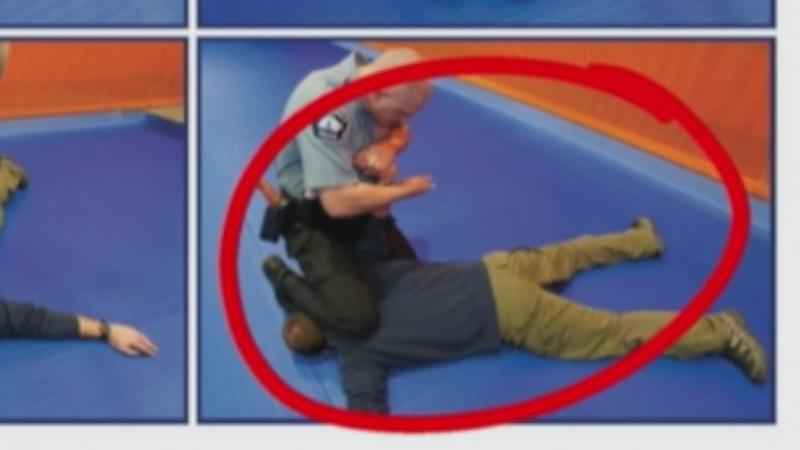Use of force expert says jurors unlikely to learn amount of pressure Chauvin used on George Floyd
[anvplayer video=”5019732″ station=”998122″]
For nearly three days, jurors in the murder trial of former Minneapolis police officer Derek Chauvin have learned about policy and procedure around the use of force training the ex-cop received during his time with the department.
On Tuesday, Lt. Johnny Mercil took the stand, the fifth sworn Minneapolis Police Department officer to call into question Chauvin’s use of restraint on Floyd.
He explained that Minneapolis police are taught to restrain combative suspects with a knee on their back or shoulders if necessary but are told to "stay away from the neck when possible."
"If you can use the least amount of a lower level of force to meet your objectives, it’s safer and better for everybody involved," said Mercil in court.
Other officers have testified that Chauvin should not have pinned George Floyd to the ground for almost 10 minutes.
Mylan Masson, a former police officer and police training expert, says while officers are permitted to use force, they are supposed to continually reassess the situation and work to lower the force used.
"Once the resistance stops, then you need stop," she said in an interview with 5 EYEWITNESS NEWS. "You need to readjust; you need to reassess what you need to do when you’re using force."
Masson says while she may not know the whole story, based on her review of the videos from the scene and the testimony so far, she did not see Chauvin reassess the situation.

But she said there is an important factor that video evidence and images cannot reveal.
"One thing that you’ll never be able to do is to see how much pressure he’s actually putting on the neck," Masson said. "Does he have full force? Does he have his whole body weight? I can’t tell if both knees are on his back if he has one knee on the ground, so we’ll never know the pressure."
Answers to those questions are likely to only come from Chauvin himself. He is not required to take the stand in his own defense.
Masson said she was surprised that the state would bring in so many different officers and experts to testify to the use of force, saying she worries the information could become redundant.
According to the notes taken by a pool reporter, one juror appeared to be sleeping in court Tuesday. However, other reporters the last few days have observed jurors being alert and attentive, paying close attention and even taking notes during the use of force testimony.